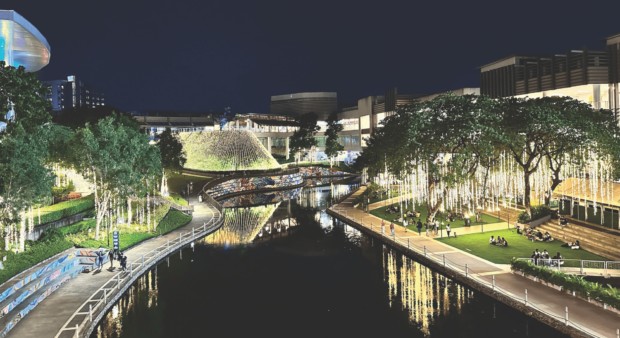
Russian music took center stage when it graced the program of the Metro Manila Concert Orchestra (MMCO) in its recent concert with professor Josefino “Chino” Toledo conducting, and pianist Cristine Coyiuto, featured soloist.
Billed “Troika” (trio) the program consisted of modern works of three Russian legendary composers: Dmitri Shostakovich (1906-1975); Sergei Prokofiev (1891-1953); and Aram Khatchaturian (1903-1978).
Originally scheduled to be performed in Francisco Santiago Hall at BDO Tower in Makati City, the concert was moved to Audi Global, PGA Cars Center at Bonifacio Global City. The audience was warmly greeted by Corazon Alma de Leon, president of MMCO Foundation, who gave a brief welcome remark.
The concert was a celebration of festive Russian symphonic sounds that happily blended well with the new venue to strike a comfortable balance. Despite performing on a platform-less floor, the orchestra played with audacious charm. In the new intimate environ, tonal balance did not seem to be a problem, even if at times the brasses would come out strong. In general, blending was dynamically arrived at, and the musicians simply played with abandon.
Great fanfare
A great fanfare characterized the rendition of the opening number, Shostakovich’s Festive Overture. Indeed, what could be more festive than the rousing strains the MMCO gave? The orchestra managed to establish rapport with the audience, which applauded vigorously at the end.
In Prokofiev’s “Lieutenant Kije” Suite, MMCO played imaginatively. It displayed flamboyant colors derived from its rich palette. Expressive was the depiction of the storyline based on a fictional character specified by the title, etched in brilliant symphonic hues. The trumpet sounded convincing backstage, announcing the fictional birth and death of the protagonist.
The same zest characterized the rendition of another suite, this time an incidental music written for Lemontov’s drama “Masquerada,” which Khatchaturian rewrote as a suite containing five movements in dance forms. There was much joie de vivre in its rendition. The musicians, one must say, had gained much finesse since hearing them in their last performance some time ago.
Such aplomb was more felt in the concerto the same composer wrote, the D Minor, with Coyiuto. It seemed the good pianist had found ease and comfort playing with MMCO. And why not, she had collaborated with it for quite a while, playing some concertos already. The chemistry between pianist and conductor simply worked well.
Intelligent programming
Playing on a brand-new, resonant Shigeru piano, courtesy of Lyric Piano, on an elevated platform, Coyiuto cut a magnetic presence and no doubt played as a virtuoso. She played with precision, solidly carving out sonorous tones that were well-projected.
Agility was unperturbed and delivered with sterling rhythmic drive. The fanfare in the first and last movements, which at times were expressed in cogent dissonances, were starkly contrasted with the melodic charm of the second movement. Sitting cool at the piano, she played with affecting warmth, etching legate and singing lines.
Needless to say, rapport was tight and did not waver at all. The musical collaboration was unalloyed, intelligently thought of, and had oneness of effect. All the more, the musicians played with gusto.
Altogether, the tandem dazzled the audience, as it brought out the èlan of the piece’s pyrotechnics.
Since its formation over a decade ago, MMCO has answered the need for the appreciation of more symphonic concerts in the metropolis. MMCO is noted for the musicality that is distinctly distilled by the “synergy” between its conductor and musicians.
We congratulate MMCO for its intelligent programming, and look forward to its future performances.













































